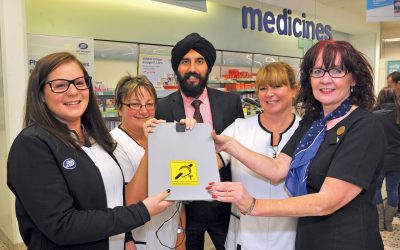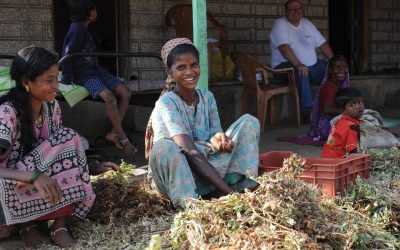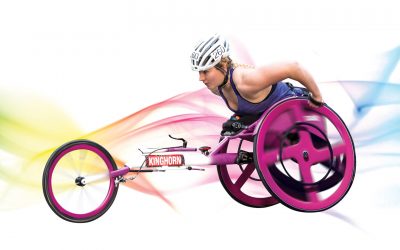As the mother of Jesus, Mary or Maria is venerated by millions of Christians throughout the world. However, following the tragic events in the Caribbean last September, it may be some time before babies are christened Maria again.
Maria, the 13th storm of the 2017 Atlantic hurricane season made its first landfall in Dominica with wind speeds in excess of 155 mph.
What followed was unparalleled carnage, devastating Dominica just two weeks after Hurricane Irma had caused considerable damage. Maria, a category five hurricane, was undoubtedly the worst storm to ever hit Dominica.
On this beautiful, unspoilt, island paradise, mains water supplies were disrupted, roads were impassable, bridges were broken; it must have seemed like Armageddon to the stunned survivors.
Thirty one people died and, as the world rushed to help restore the broken Garden of Eden, so did Disaster Aid International.
It’s amazing to think how this scheme is 47-years-old with its origins planted in the Rotary Emergency Box, which was conceived by Arthur Bowker who, at the time, was a member of the Rotary Club of Ashton-under-Lyne in Greater Manchester.
Arthur recognised there were people affected by all kinds of natural disasters around the world who had lost everything they owned. Provision of a few very basic things quickly would help these people survive and he also knew that Rotary was a huge force for good with a global reach.
In 2010, the UK project joined forces with Rotarians around the world to form Disaster Aid International. The pooling of our respective resources and expertise has inevitably resulted in an organisation which now has a significant impact on disaster relief.
Our brief was to provide new roofs to destroyed homes, ensuring they would withstand the next, inevitable, hurricane.”
Each country partner of Disaster Aid International is sponsored by a Rotary club – in the case of Disaster Aid UK & Ireland, that is the Rotary Club of Denton & Audenshaw.
In Dominica, the Disaster Aid International team consisted of myself, a 58-year-old retired police officer living near Loch Lomond in Scotland, Suzi Vaill, 48, a project manager from Hamble in Hampshire, and team leader Tore Knos, 68, a retired master builder who switches his time between Los Angeles, California, and Santa Fe in New Mexico.
We spent 10 days on the island and worked closely with the United Nations which co-ordinates relief activity and humanitarian effort.
The roofing project was the main aim of the deployment. Our brief was to provide new roofs to destroyed homes, ensuring they would withstand the next, inevitable, hurricane. Following leads from local Rotary clubs, many damaged houses were identified and some, not all, deemed strong enough to take a new roof.
Tore is a master builder and Ezra Fabien, President of the Rotary Club of Portsmouth on the island, is a building contractor. They worked closely with guide Hans Schilders to establish the type of work that was feasible and what could be achieved with our funds.
The other element of the deployment was ensuring remote villages were receiving clean water. Having brought water filters in our luggage, and with our guide, we drove to villages in the north and east of the island to get a feel for the need.
Our Sawyer water filters are tiny, but capable of treating as much water as a family needs over a lifetime. Each bucket kit filter is about the size of a one litre bottle of water but capable of producing thousands of litres of safe, bacteria-free water.
Disaster Aid works closely with local Rotary clubs. We stayed at a hotel owned by two Rotarians, Hans Schilders and Lise Van de Camp, two Dutch expats from the Portsmouth club. We also worked with Aylmer Irish, President of the Rotary Club of Roseau.
More babies and their families will have a secure roof and access to safe drinking water.”
With additional water filters donated by the two Rotary clubs, around 250 water stations were distributed to isolated villages.
This meant that about 1,000 people were given access to safe drinking water.
The importance of bacteria-free drinking water cannot be underestimated as everything flows from safe water. That simple step immediately improves health and relieves pressure on hospitals.
One of the bits of advice I had been given before deploying was to take wee daft gifts for the kids. The person advising me had taken loom bands and the kids loved them. I bought 300 foam smiley faces and about 150 packs of Parma Violets sweets.
All my life I have been told never take sweets from a stranger and all my adult life I have been careful not to break that rule as well. But here I was in the Caribbean, 4,000 miles from home, handing out sweeties to children.
There might not be many Marias christened in the near future but because of Disaster Aid International’s deployment, more babies and their families will have a secure roof and access to safe drinking water.
Dominica will take years to recover from Maria and much help is still needed. Can you help restore the Garden of Eden?


























































